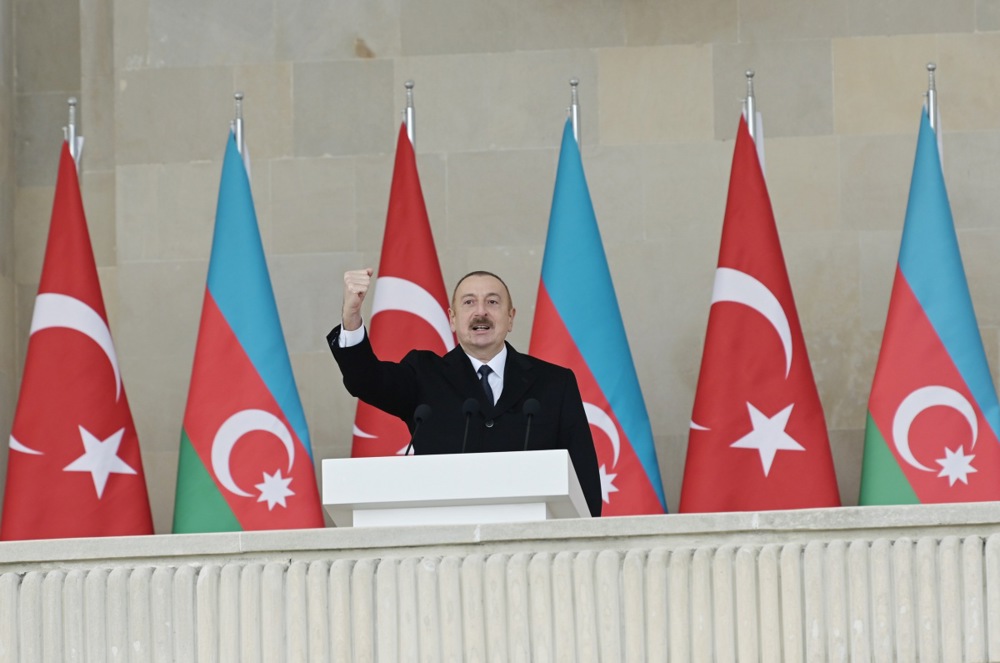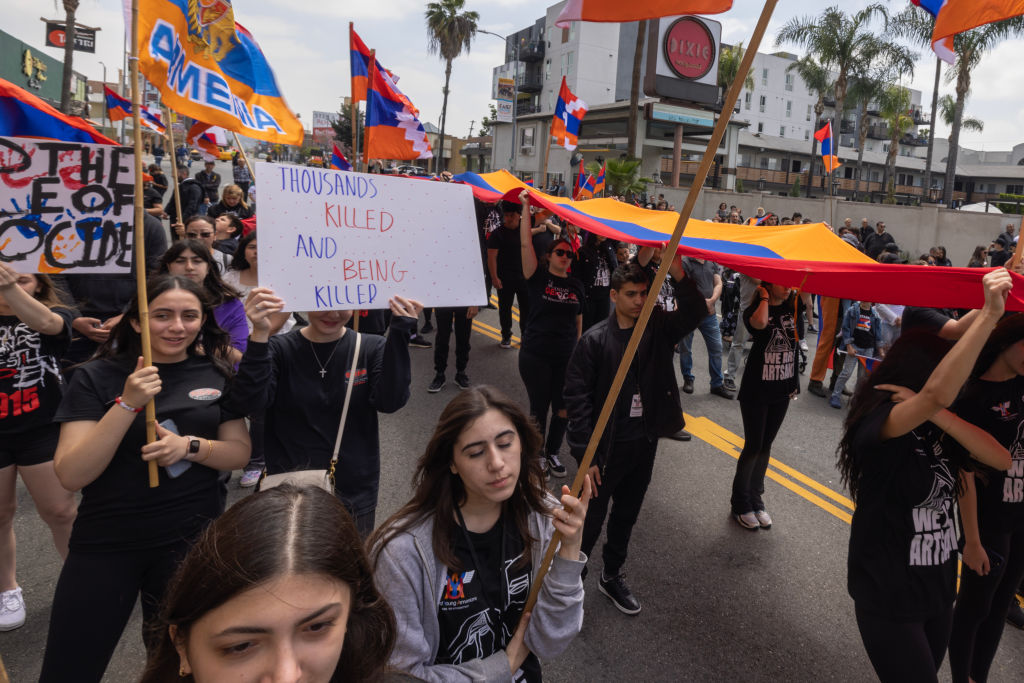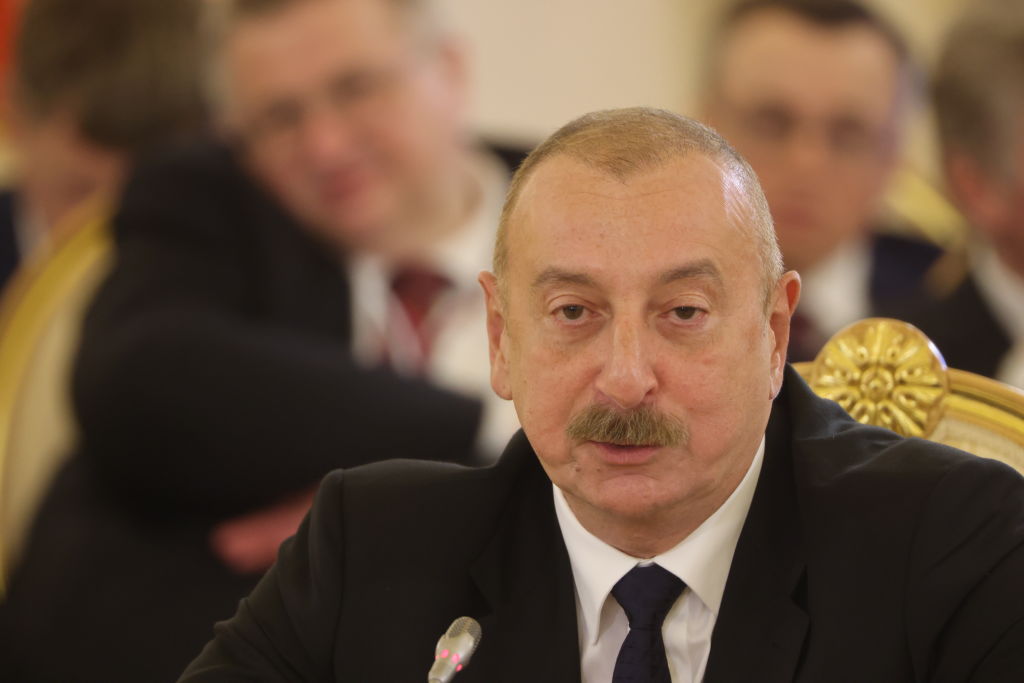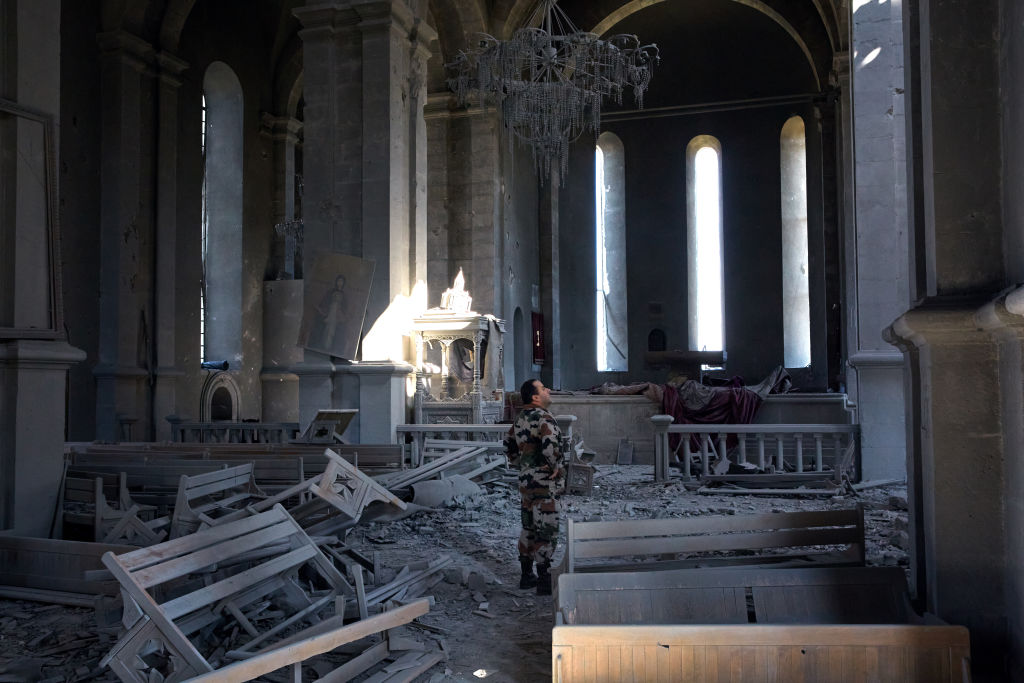A delegation of 15 French representatives visited the border between Armenia and Azerbaijan earlier this week in the hope of reaching the blockaded region of Nagorno-Karabakh, where there is an apparent ongoing humanitarian crisis. Azerbaijan refused to let them pass.
The elected French officials accompanied a convoy of around a dozen trucks carrying food items, electric generators and solar panels that were seeking to reach the disputed territory of Nagorno-Karabakh, where the Armenian population has been cut off from the rest of the world for the past nine months.
The humanitarian effort was initiated by Paris Mayor Anne Hidalgo with the support of the Mayor of Strasbourg, Jeanne Barseghian, the first deputy of Marseille, Michèle Rubirola, the president of Hauts-de-France, Xavier Bertrand, and the leader of the Les Républicains senators, Bruno Retailleau, France 24 reported.
During a press conference in the Armenian village of Kornidzor, Hidalgo said what was happening in Nagorno-Karabakh “was something that resembled genocide”.
Denouncing what they called a “major humanitarian crisis” and a “situation reminiscent of the darkest hours in Armenian history” the officials called on French President Emmanuel Macron to take “the initiative of a resolution at the United Nations Security Council demanding the immediate and unconditional opening of the Lachin Corridor”. The corridor is the primary route into the under-siege region from Armenia.
10 trucks filled with humanitarian aid have departed Yerevan for Nagorno-Karabakh. They are accompanied by the Mayor of Paris, Anne Hidalgo and will attempt to cross the Azerbaijani blockaded Lachin Corridor. pic.twitter.com/0jA9md0VXR
— Ver Media (@vermedianetwork) August 30, 2023
The humanitarian mission failed in its objectives as Azerbaijan did not want to let the delegation pass, as it is blocking the Lachin Corridor.
Azerbaijan said it had set up checkpoints on the short mountainous road for “security reasons”, while officials in the Armenian capital Yerevan have demanded that the UN intervene to prevent a “humanitarian catastrophe”.
Critics accuse Azerbaijan of perpetrating an ongoing genocide by depriving the Armenian people in the region of necessary items such as food and medical supplies.
Azerbaijan, outraged by the humanitarian mission, on August 31 summoned the French Ambassador to the country.
En Arménie, avec des élus parisiens et d'autres collectivités. Depuis neuf mois, 120 000 arméniens d'Artsakh, dont 30 000 enfants, sont isolés, affamés, privés de tout. Face à cette catastrophe humanitaire, nous leur apportons une aide d'urgence. Le temps est compté. pic.twitter.com/wJZHSH7db4
— Anne Hidalgo (@Anne_Hidalgo) August 30, 2023
“The Ambassador received a note of protest over vehicles being sent to the Lachin border post … under the cover of ‘a humanitarian convoy’,” officials in the Azerbaijani capital Baku said.
They also condemned the “provocative declarations [of French politicians] against Azerbaijan”, which they said were prompted by a “campaign of lies and manipulation by Armenia”.
“This constitutes direct French interference in Azerbaijan’s internal affairs,” they added.
Baku maintains that the Lachin Corridor is open to civilians and in late August announced that it will send an “assistance convoy” to Nagorno-Karabakh.
Armenia praised the French attempt to help. The foreign affairs minister of Nagorno-Karabakh Sergey Ghazaryan met the French representatives in Kornidzor.
“It is noteworthy that French politicians with different, sometimes opposite political stances, have taken a united position on the issue of supporting the people of Nagorno-Karabakh,” Ghazaryan said.
Armenian Prime Minister Nikol Pashinyan on September 1 accused Azerbaijan of continuing what it called its genocidal policy in Nagorno-Karabakh.
“The main goal of this policy is to make Nagorno-Karabakh Armenian population leave,” Pashinyan said, adding that one of the elements of that policy was to allow Armenians from Nagorno-Karabakh to travel to Armenia and then ban their return to the region.
France has one of the largest Armenian populations in the world, behind Russia and the United States. Most of the Armenian diaspora in France are descended from survivors of the 1915 killings which are recognised by many though not all EU countries as genocide.
On August 28, French President Emmanuel Macron vowed to launch a new diplomatic initiative to up the pressure on Azerbaijan over its blockade of Nagorno-Karabakh.
Aux côtés d'élus et de collectivités territoriales françaises, nous adressons cette déclaration commune au président de la République pour que la France soutiennent les arméniens d'Artsakh. pic.twitter.com/JOO8NsR3OJ
— Anne Hidalgo (@Anne_Hidalgo) August 31, 2023
Nagorno-Karabakh is a small enclave with an ethnic Armenian population situated within Azerbaijan. It is administered by the Republic of Artsakh, which lacks official recognition but receives support from Yerevan.
It was established in the 1990s as Armenian forces occupied the region following the initial Nagorno-Karabakh conflict from 1988 to May 1994.
In 2020, Azerbaijani military forces launched a counteroffensive, effectively encircling the ethnically Armenian territory.
Authorities in Azerbaijan maintain that the region rightfully belongs to them and its residents are Azerbaijani citizens. They are resolute in their refusal to legitimise Armenian leadership within Nagorno-Karabakh.





